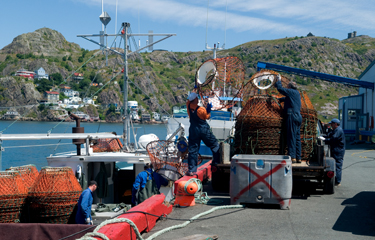Less than two weeks after Canadian harvesters and processors finally ended their fight over snow crab prices in Newfoundland and Labrador, prices for the crustacean are inching up.
The minimum price paid to crabbers in Newfoundland and Labrador rose to CAD 2.25 (USD 1.67, EUR 1.56) per pound, up from the CAD 2.20 (USD 1.63, EUR 1.52) per pound members of the Fish Food and Allied Workers union (FFAW) initially went on strike to protest before finally agreeing to a deal with the Association of Seafood Producers (ASP). The deal between the ASP and FFAW guaranteed incremental increases to the price as market rates go up, based on the Urner Barry price for snow crab.
That provision has paid off in less than two weeks, as the Urner Barry price index reached USD 4.85 (EUR 4.52), the threshold needed to boost the price paid to fishers to CAD 2.25 per pound.
“The formula-like increase is per the agreement negotiated following the seven-week tie up last month, and proof that standing strong and fighting back makes a difference,” the FFAW said in a release.
The price increase win comes as the FFAW and the ASP are in another battle over tolerance limits on four-inch snow crab size. The FFAW has called for the Canada Department of Fisheries and Oceans, along with provincial departments responsible for seafood processing regulations, to “take action” against companies that the union reports are ignoring the longstanding 20 percent tolerance limit.
According to the FFAW, processors are implementing a zero percent tolerance limit, which the union calls “the latest in a string of bad-faith business tactics and proof that federal and provincial intervention is required to ensure companies operate in a way that protects the important snow crab resource and the communities that rely on it.”
“These companies are once again trying to pull one-over on fish harvesters because of the modest gains we made during the extended tie-up,” FFAW President Greg Pretty said.
The 20 percent tolerance for under four-inch crab has been the agreed-on amount since its inception 25 years ago, the union said. The FFAW said the ASP is claiming they have the authority to remove the tolerance language without discussing it.
“This underhanded move should be concerning to anyone who cares about how our natural resources are managed,” Pretty said. “It’s reckless behavior on behalf of these companies, and it’s abundantly clear it’s retaliation for the deal we signed with the premier a couple weeks ago. It’s their way trying to claw back any gains we made during that six-week period.”
Photo courtesy of Threerocksimages/Shutterstock







